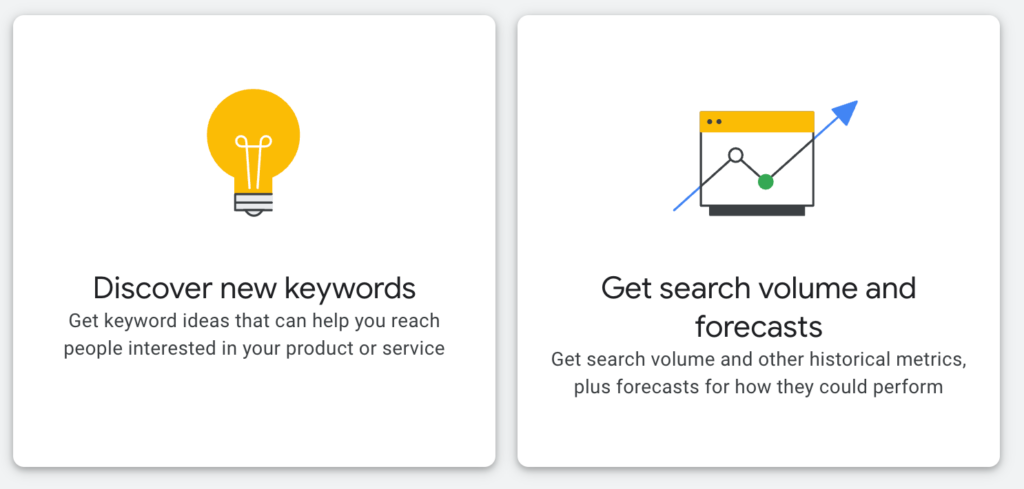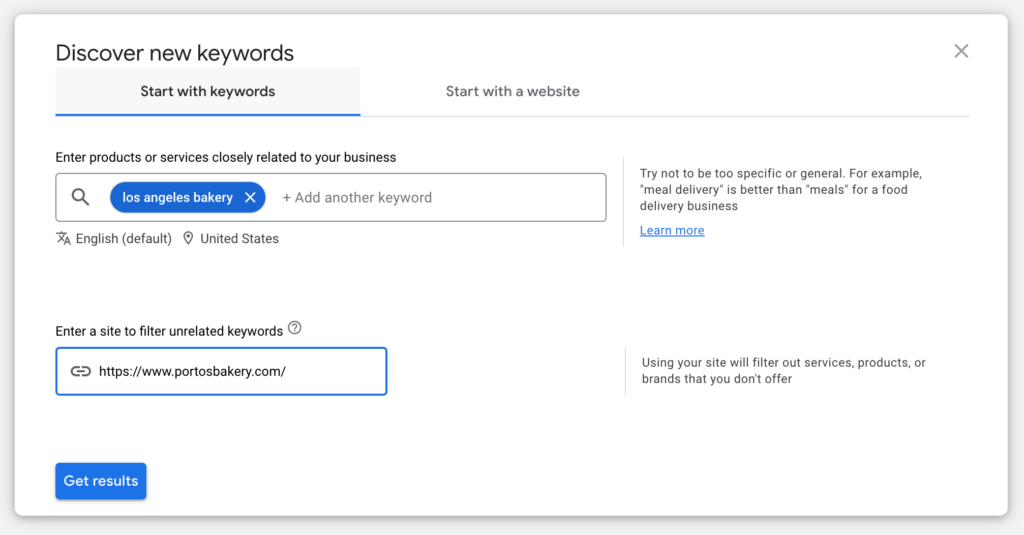Your cart is currently empty!
Google Keyword Planner is a popular tool for getting keyword data, as it is a free option directly from the search engine. While it doesn’t offer the metrics of a professional keyword research tool, it can provide insight into related keywords and search volumes.
This article covers the basics of the tool, as well as some common uses. Read more to understand the essentials of Keyword Planner.
What is Google Keyword Planner?
Google Keyword Planner is a tool provided by Google within its Google Ads platform. It assists in keyword research, an essential aspect of SEO, and pay-per-click (PPC) marketing.
It is a free, useful tool for researching topics and their popularity online. You can discover new keywords and get historical statistics and forecasts of keyword performance.
Why Use Google Keyword Planner?
Understanding which keywords your target audience uses to search for services or products like yours is crucial. Keyword Planner helps:
- Find relevant keywords: The tool provides keyword ideas based on your input. Start with one topic and Keyword Planner will suggest similar options.
- Understand search volumes: Learn the monthly average searches for a particular keyword, also known as search volume.
- Get forecasts: See future predictions for your keywords, like clicks and impressions, based on market data from the past 7-10 days.
Understanding the Google Keyword Planner Interface
Once you’re in the tool, you’ll find two primary options:

- Discover New Keywords: Enter words, phrases, or a URL related to your business to get new keyword ideas.
- Get Search Volume and Forecasts: Enter your list of keywords to get historical metrics like search volume or predictions about their future performance.
For the sake of this guide, we’ll use the “Discover New Keywords” tool.
Finding and Choosing the Right Keywords
You can start performing keyword research once you click on Discover new keywords. Here’s a step-by-step guide:
- Enter a keyword related to your business in the search box. For instance, if you run a bakery, you might input “bakery” or something more specific like “los angeles bakery”.
- Optional: Enter your homepage URL. This will help with the relevance of your results, as it gives the tool more clues on your content and offerings.
- Click Get results.
Here’s a sample of what a search might look like:

You will get a list of keyword ideas based on your input, along with information such as:
- Avg. monthly searches: The average number of searches for this keyword per month.
- Competition: How many advertisers are bidding on this keyword.
- Ad impression share: The number of impressions your ads have received divided by the total number of searches that matched the keyword. This data is only available for keywords used in your active campaigns.
- Top of page bid (low range and high range): The lower and upper range of what advertisers have historically paid for a keyword’s top of page bid.
An example report, using the search from earlier:

Interpreting and Using Keyword Data
When using Google Keyword Planner for your SEO or PPC campaigns, consider:
- Relevance: Choose keywords most relevant to your business. Irrelevant keywords might drive traffic but won’t lead to conversions. There is no metric on this, so use your best judgment.
- Search Volume: High search volume means many people search for that keyword. However, a higher search volume usually means more competition.
- Competition: If the competition is high, you’ll have to outbid many advertisers to rank for that keyword in PPC. For SEO, high competition means ranking will take more time and effort.
- Top of Page Bid: If you plan to use PPC, consider how much you will pay for each click. The estimates will show a range of prices.
Bottom Line
Google Keyword Planner is a powerful tool for anyone involved in SEO or PPC. You can find relevant keywords, understand their search volume, gauge competition, and make informed decisions. Like any tool, the trick is to learn how to use it effectively. Start small, experiment, learn, and iterate to succeed in your digital marketing efforts. ?
Topics






